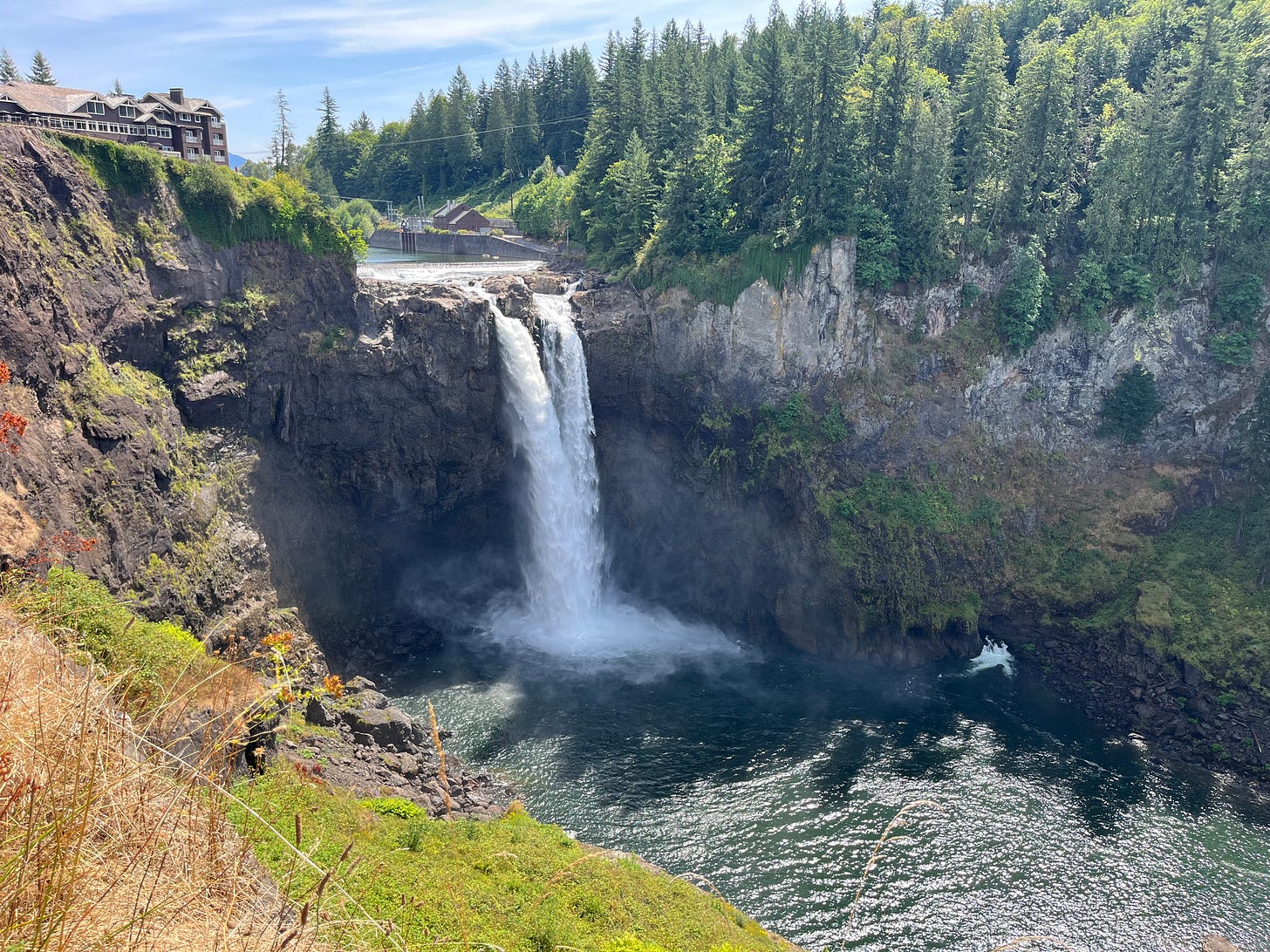
“Entering the town of Twin Peaks, five miles south of the Canadian border, twelve miles west of the state line. I’ve never seen so many trees in my life. As W. C. Fields would say, I’d rather be here than Philadelphia.”
—Agent Dale Cooper (Kyle MacLahlan), Pilot (Twin Peaks)
NORTH BEND, WASHINGTON— The dense pines sparkled in the summer sun. We weren’t more than an hour from metropolitan Seattle, but North Bend and its sister town of Snoqualmie felt like places apart.
It was probably these qualities that led Twin Peaks co-creators David Lynch and Mark Frost to situate most of their landmark television series here. A panoramic picture of a small town riven apart by the death of Homecoming queen Laura Palmer, to simply call Twin Peaks a “murder mystery” does a disservice to its unique blend of melodrama, offbeat humor, surreal images, and horror. In its scale of ambition, it laid the groundwork for the prestige TV era—long narrative arcs, huge casts, varied geography—an ambition that doomed its initial run, but made its eventual patchwork of stories even more compelling: a network TV series, a prequel film, and a Showtime revival, all richer as viewing experiences in the streaming age.
For me, Twin Peaks encapsulated why I got into writing in the first place. With its sharp turns between wry humor and sublime horror, it situated melodramatic story steeped in mystery, all suffused with a sheen of neo-noir and Lynchian Americana. It’s hard for me to get invested in story without intrigue, without hope and dread, but Twin Peaks has all of these elements—storytelling pieces I’ve tried to incorporate in my own narrative writing, fiction or otherwise.
So when a friend of mine invited me to join his group running a half-marathon in the North Bend area, I jumped at the chance to see the filming locations for myself.


